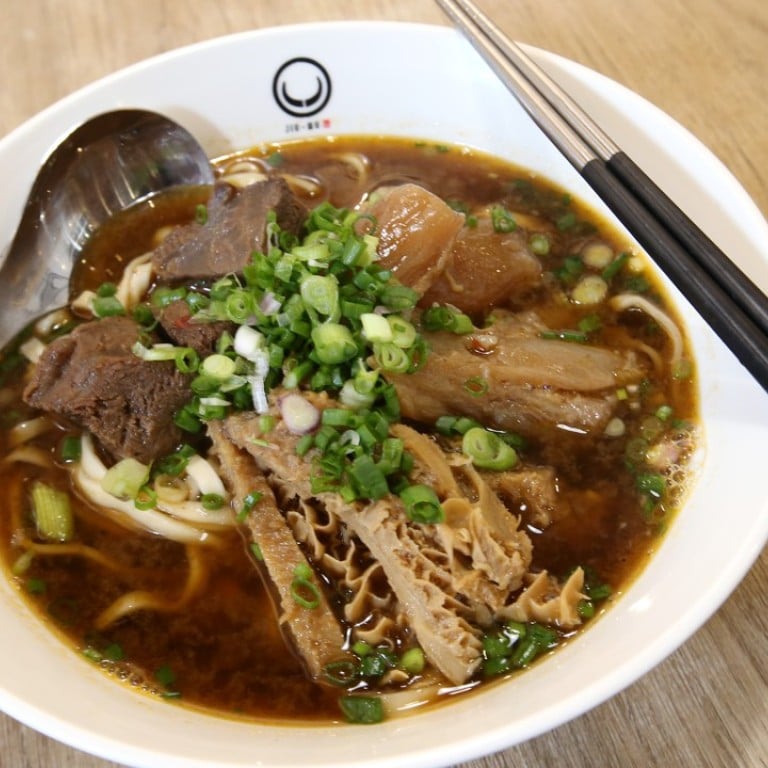
Best places to eat Taiwanese beef noodle soup in Hong Kong
Humble, inexpensive but a belly-warming delight, Taiwanese beef noodle soup is a popular comfort food in Hong Kong – but needs to be done right. We look at three restaurants recreating the beloved dish’s authentic taste and texture
When you’re eating a good bowl of Taiwanese beef noodle soup, slurping the noodles, chewing on the beef meat and gulping down the broth gives you not only a warm body, but a warm heart.
At least that is the hope of Marco Hon Mo-yuen, the owner of Iron Cow, which specialises in the dish. Since it opened four years ago, the original shop in Tsim Sha Tsui has expanded to three others across Hong Kong and garnered a large following in the city.
Four decades as a Cantonese cuisine innovator: Tsui Hang Village
Taiwanese beef noodle soup has its origins in Sichuan. In the late 1940s, when China was in the midst of a civil war, about two million Chinese people moved to Taiwan as the Nationalist Party of China retreated from the mainland. Sichuan province was the last stronghold of the Nationalists’ military. Nostalgic for the food they had left behind, Sichuan immigrants in Taiwan made the best of ingredients they could find in their new home and cooked beef noodle soup with their beloved spicy bean paste.
But although it had its start in Sichuan, the Taiwanese have tweaked the original dish and created their own. Fresh noodles served in a rich and slightly spicy beef broth come with thick slices of various beef cuts, with chopped spring onions and fresh coriander sprinkled on top, and pickled mustard greens on the side. Humble and inexpensive, it is a belly-warming delight.
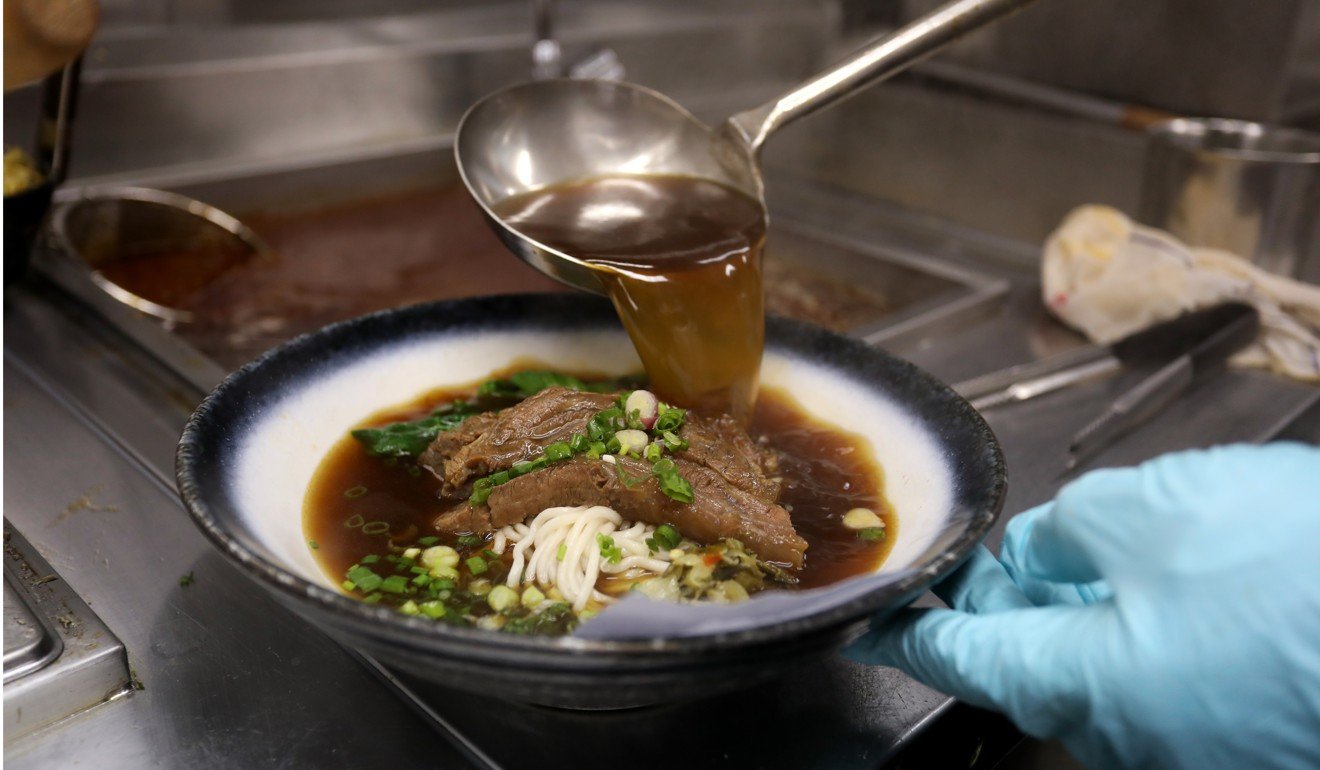
Hon was born in Hong Kong but moved to Taiwan with his family at the age of 22 to help relatives who ran food businesses there. He spent 10 years there before returning to Hong Kong five years ago, and he still feels attached to his former home. “I like the homely and leisurely culture. People there are kind and simple. It is a place full of human touch and affection, and makes you comfortable and relaxed.”
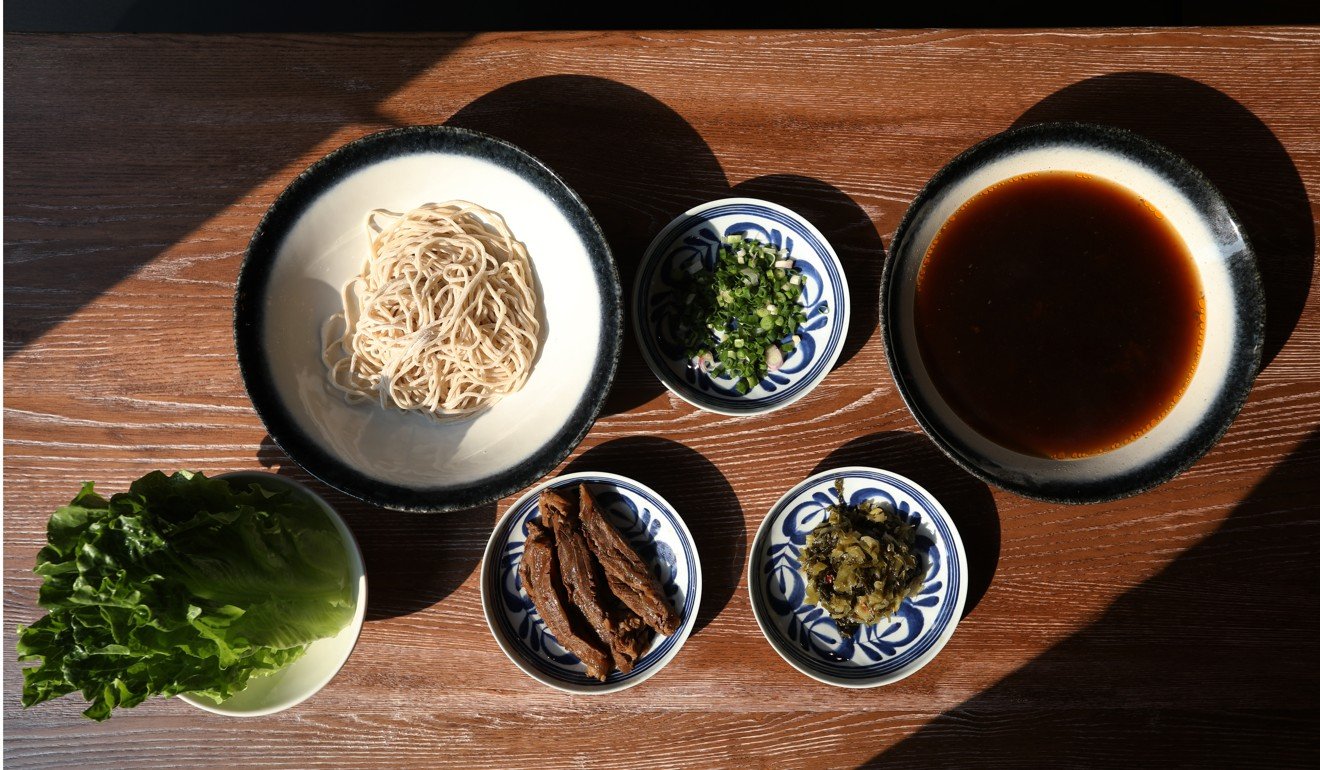
As he worked in his relatives’ restaurants, Hon found that Taiwanese people seemed to be easily fulfilled and enjoyed whatever they chose to do.
“We usually worked till very late. By the time we closed the door, I was exhausted. I remember the time I asked the dishwasher if she felt tired, when I saw piles of unwashed dishes stacking up beside her. The middle-aged lady, who was Taiwanese, replied, ‘No, I’m fine. It’s a labour of love. I pretty much enjoy what I do.’ I was touched by her words,” he says, adding, “Without passion and affection, you can’t go far in the catering industry.”
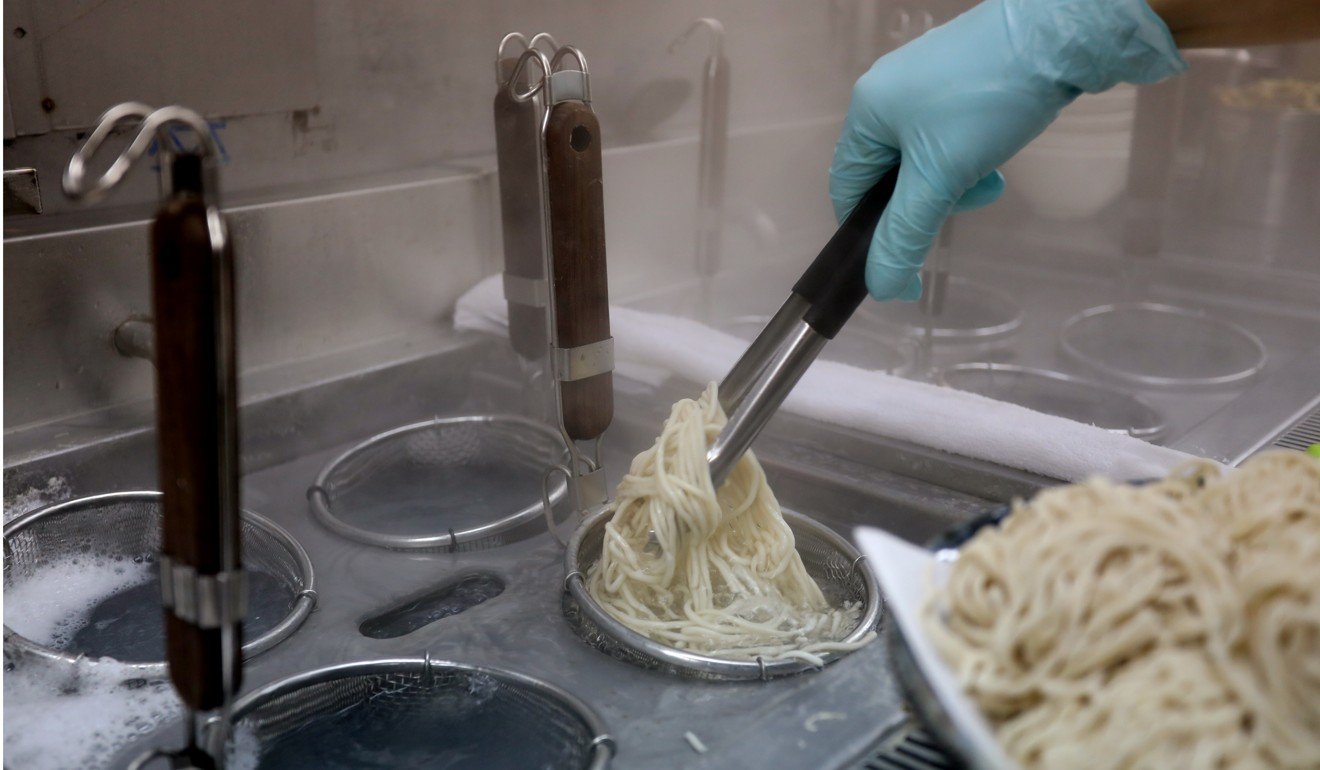
What Hon is striving to achieve at Iron Cow is to make customers really feel at home. The restaurant’s braised Taiwanese beef noodle soup tastes like a grandmother’s comfort food; indeed, it comes from a home recipe, created by Hon’s extended family in Taiwan.
To make the broth, a variety of fruits and vegetables – radishes, carrots, leafy greens, pears and apples – are boiled with more than 10 kinds of spices. “You can taste a subtle fruity sweetness in the broth – it is light and refreshing,” Hon says, adding that it is good at whetting the appetite, especially in hot and humid weather. The noodles are topped with thick, hand-cut slices of beef with a precise ratio of lean meat to tendon.
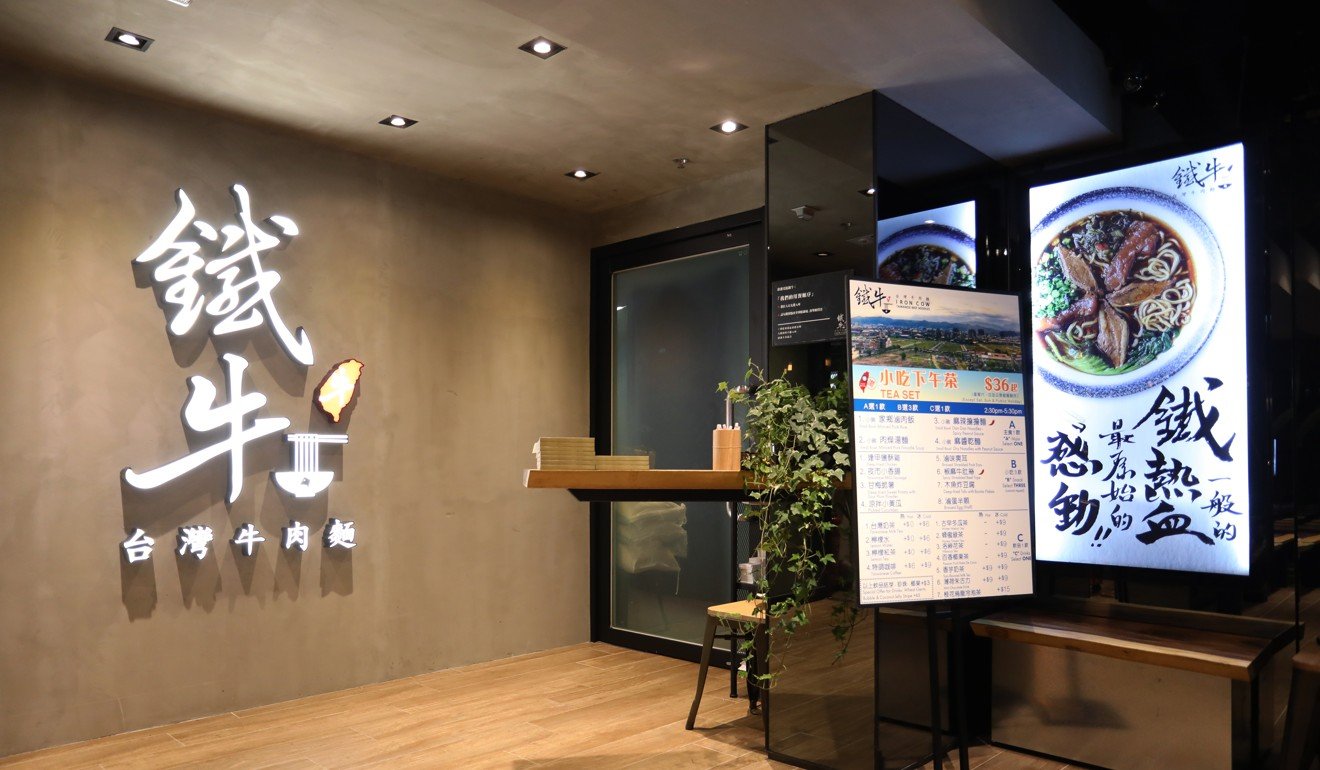
Another lover of Taiwanese cuisine is Laurinda Ho Chiu-lin, the daughter of Macau casino mogul Stanley Ho. The socialite, singer and actress recently opened Jiu-Wu Beef Noodles in Causeway Bay.
“I am a foodie, enthusiastic about Taiwan food,” Ho says. “I go to Taiwan to eat at least once a month. I love duck blood jelly, pig blood cake, stinky tofu, braised delights, and ba-wan [a type of chewy wrapped meatball].”
She also loves beef noodle soup. She says she has lost count of how many beef noodle restaurants she has visited in Taiwan, but only a few have ever impressed her. “I had dry throat and excessive internal heat after eating in some stores – probably they added artificial flavourings in the soup.”
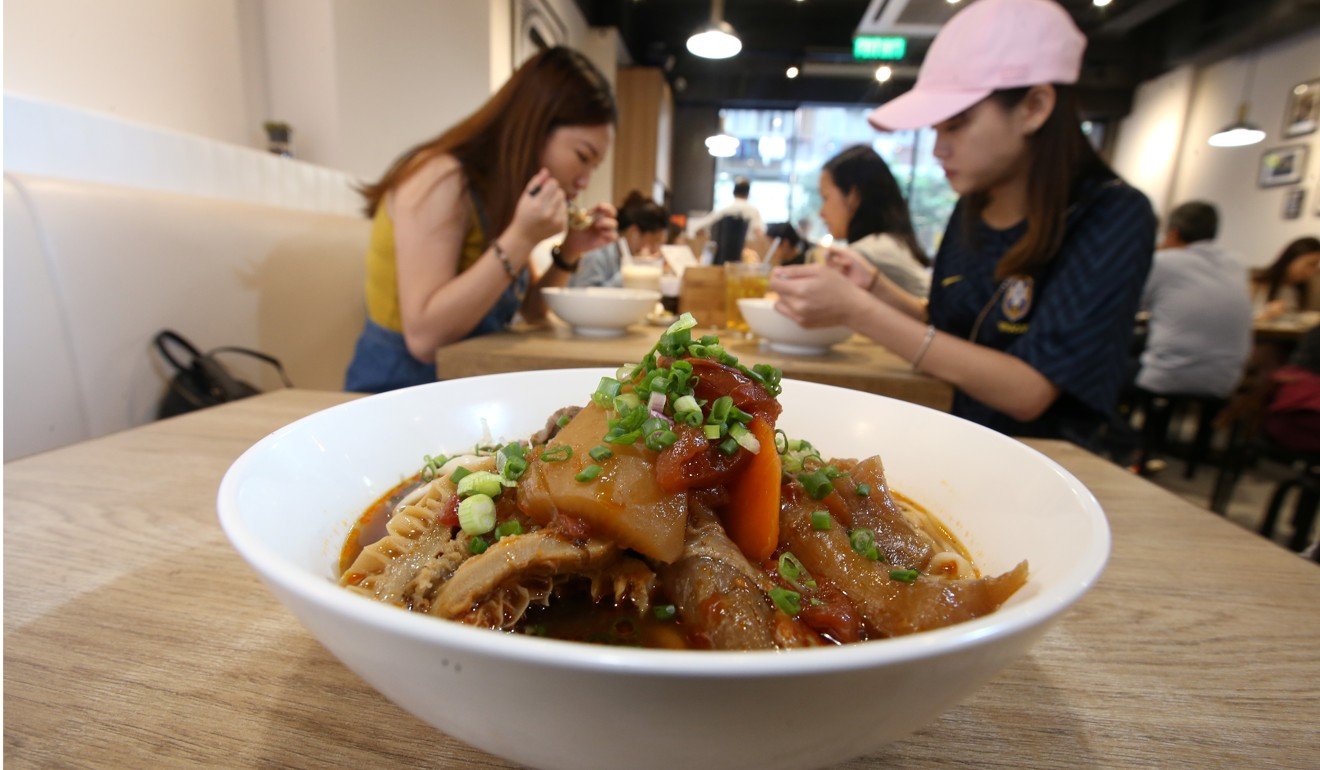
She didn’t find one she really liked until a Taiwanese friend, whose family runs a restaurant in Taipei, invited her to a 50-year-old noodle shop in the city called Jiu-Wu Beef Noodles.
“The soup was savoury and mellow and went down the throat smoothly. It was indeed comfort food,” she says.
Ho had the idea of importing those noodles to Hong Kong. But the store was just an unassuming family business with only the one shop in Taipei. “They had no intention of expanding, fearing that the food quality couldn’t be guaranteed,” Ho says. She spent more than two years convincing the owner to open a branch in Hong Kong.
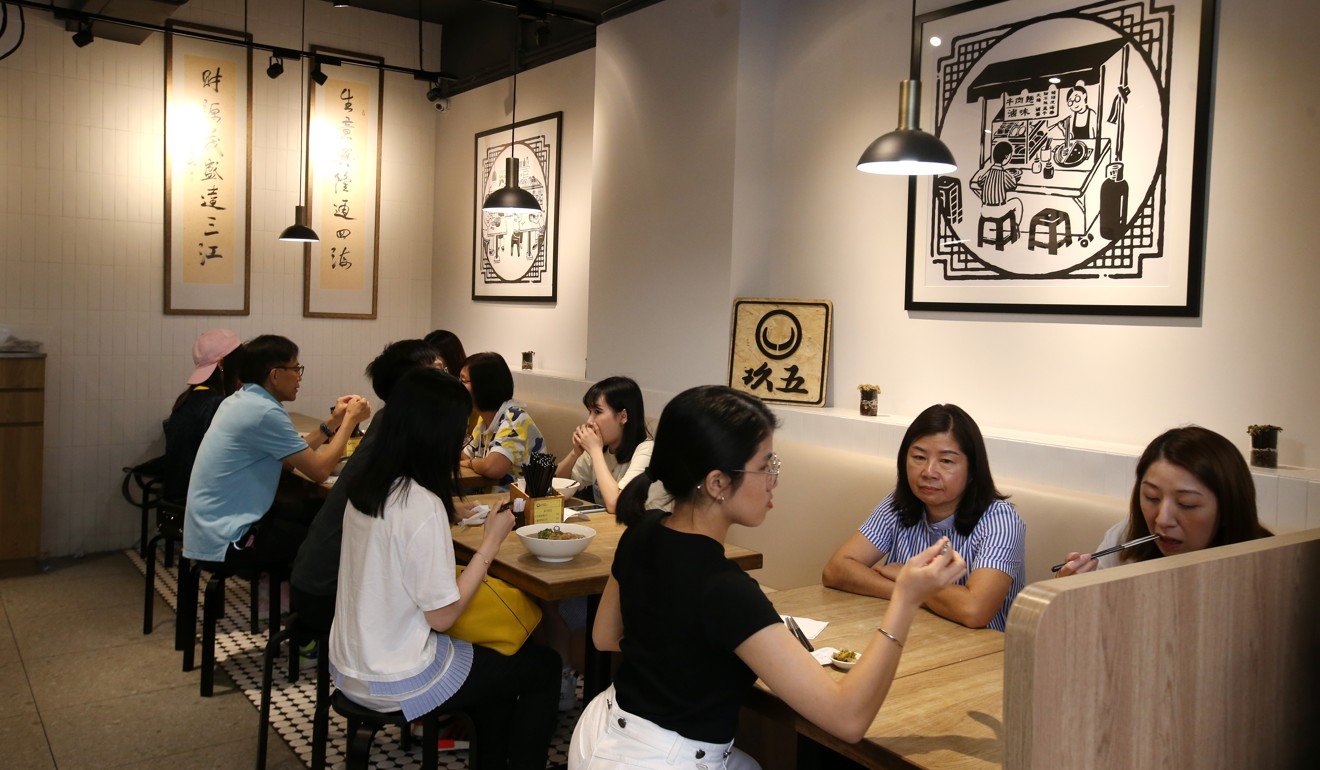
Everything in a bowl of noodles at Jiu-Wu is carefully planned and painstakingly prepared. The soup base is made by boiling beef bones for eight hours and is spiked with a selection of herbs which are a well-kept secret. A certain amount of old broth, called lao tang, is added to the fresh broth as a natural flavouring.
The restaurant imports premium beef from the US and only uses cuts from the very heart of the shank. “Every cow has only two cuts of this,” Ho says. “We serve four to five slices of the shank meat for each bowl, so each cow can only serve four customers. So it’s very precious.”
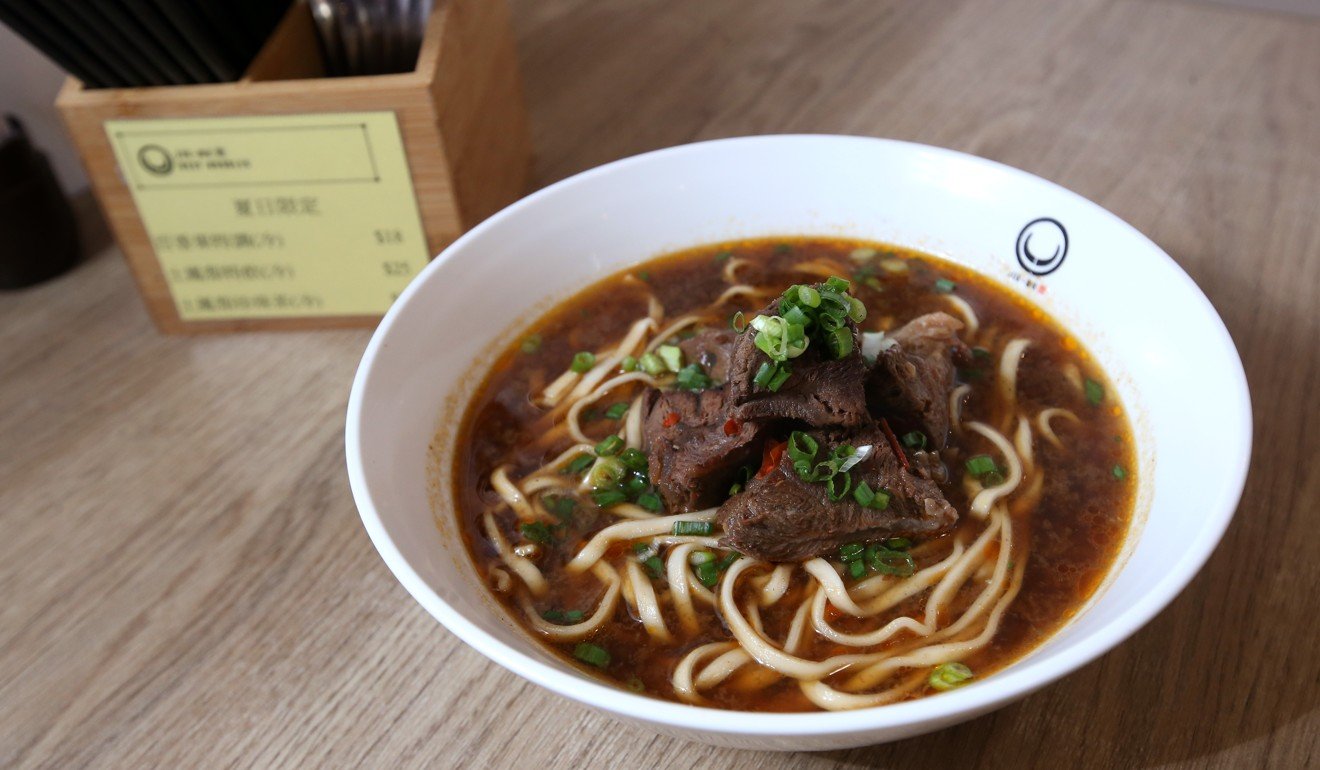
The noodles are made to precise specifications by a noodle factory in Hong Kong. Taiwanese chefs and foodies argue about what constitutes the “best” noodles for the dish, and Ho is no different. “The ideal noodles are springy, chewy and gua tang,” she says. By gua tang she means that when the noodles are lifted with chopsticks from the bowl, the soup clings to the noodles, enveloping every strand. “We can get the effect with Hong Kong’s alkaline noodles, and Taiwanese egg noodles do it well, too.”
To get the required “Q” texture – an increasingly popular term for bouncy and chewy foods beloved by the Taiwanese, particularly ba-wan, fish balls and the tapioca balls in bubble tea – Ho took noodle samples from the Taiwan shop. Back in Hong Kong, she showed the samples to local noodle makers and asked them to produce an identical variety of the same shape, width and length.
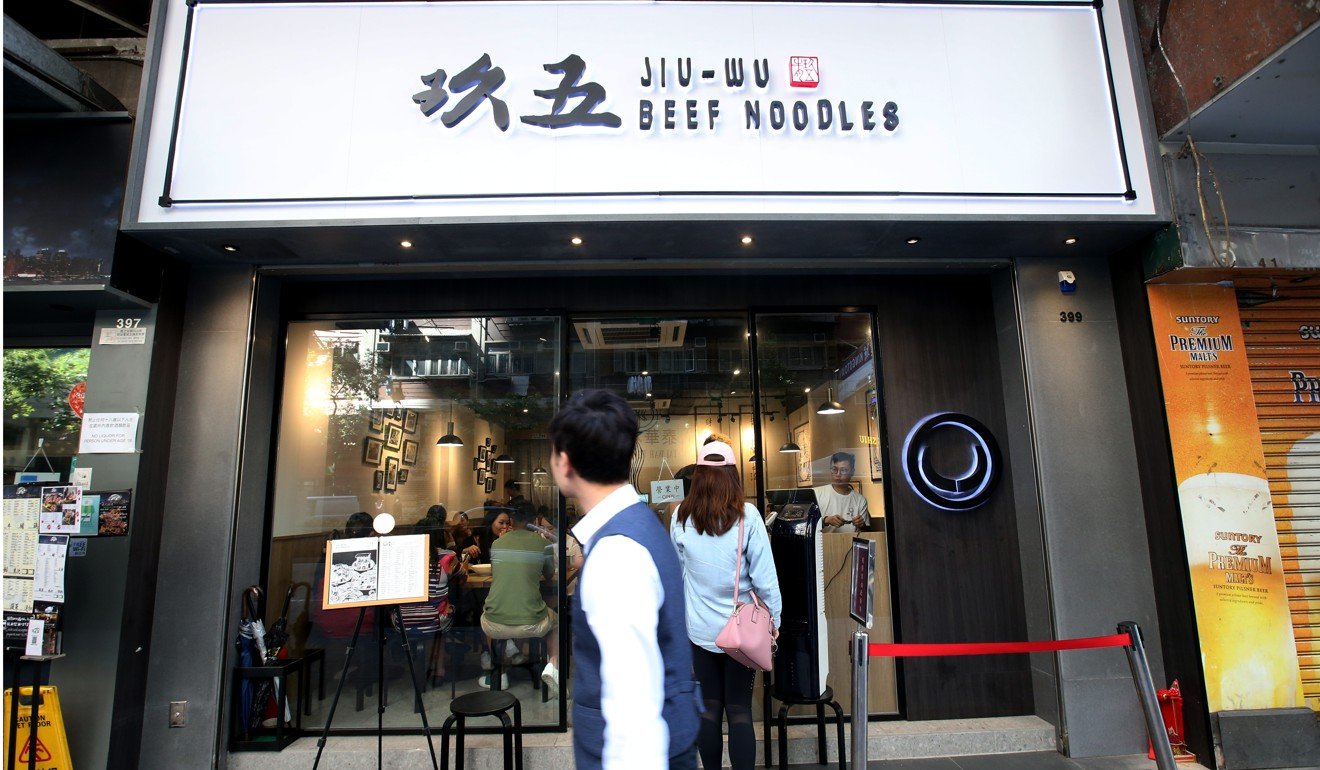
Ho’s affection for Taiwan isn’t just about food, but extends to the amiable, hospitable people. “The Taiwanese are so nice that they always smile and talk politely to you no matter who you are,” Ho says. “For example, if the dish you order is sold out, a Taiwanese waitstaff will apologise [and suggest] other alternatives. In Hong Kong, you might get a cold reply: ‘No, we don’t have it.’”
While [beef noodles in Taiwan] all taste very similar, there are nuances. Every restaurant has its unique [flavour]
Another Hong Kong noodle specialist, Gu Zao Beef Noodles in Sham Shui Po, is attracting diners partly because of the name.
“Gu zao wei” is a term for food prepared and served in the traditional manner. Trying out old-fashioned delicacies is fashionable in Taiwan, and gu zao cuisines are popular with young people who like searching for dishes that might have been eaten by their grandparents.
“I have a special feeling about the term ‘gu zao’,” says Sassoon Wong, owner of Gu Zao Beef Noodles. “To me, it means nostalgia, or grandma’s recipe.”
Wong frequently travels to Taiwan, where the night markets are his favourite hang-out. “I walk along and eat. It feels great,” he says.
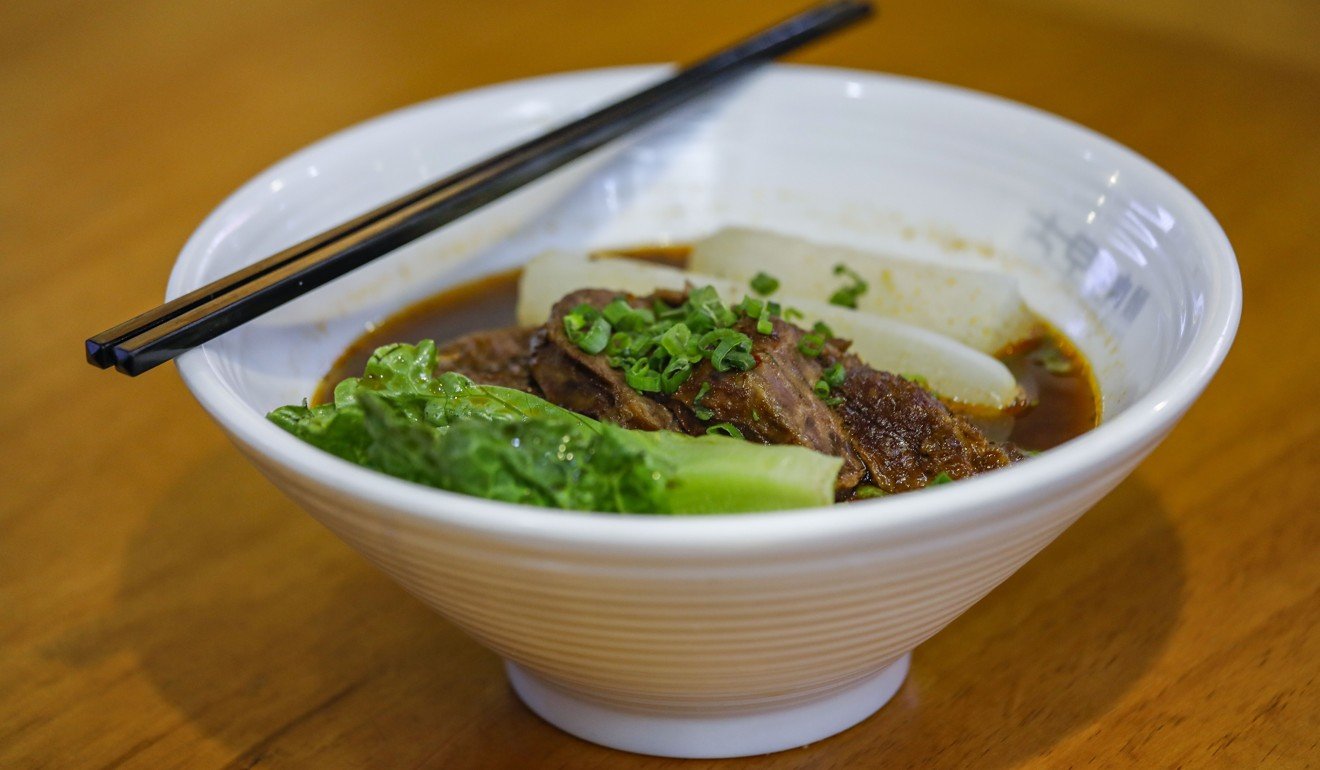
Wong has eaten at many beef noodle restaurants all over Taiwan. “While they all taste very similar, there are nuances. Every restaurant has its unique [flavour].”
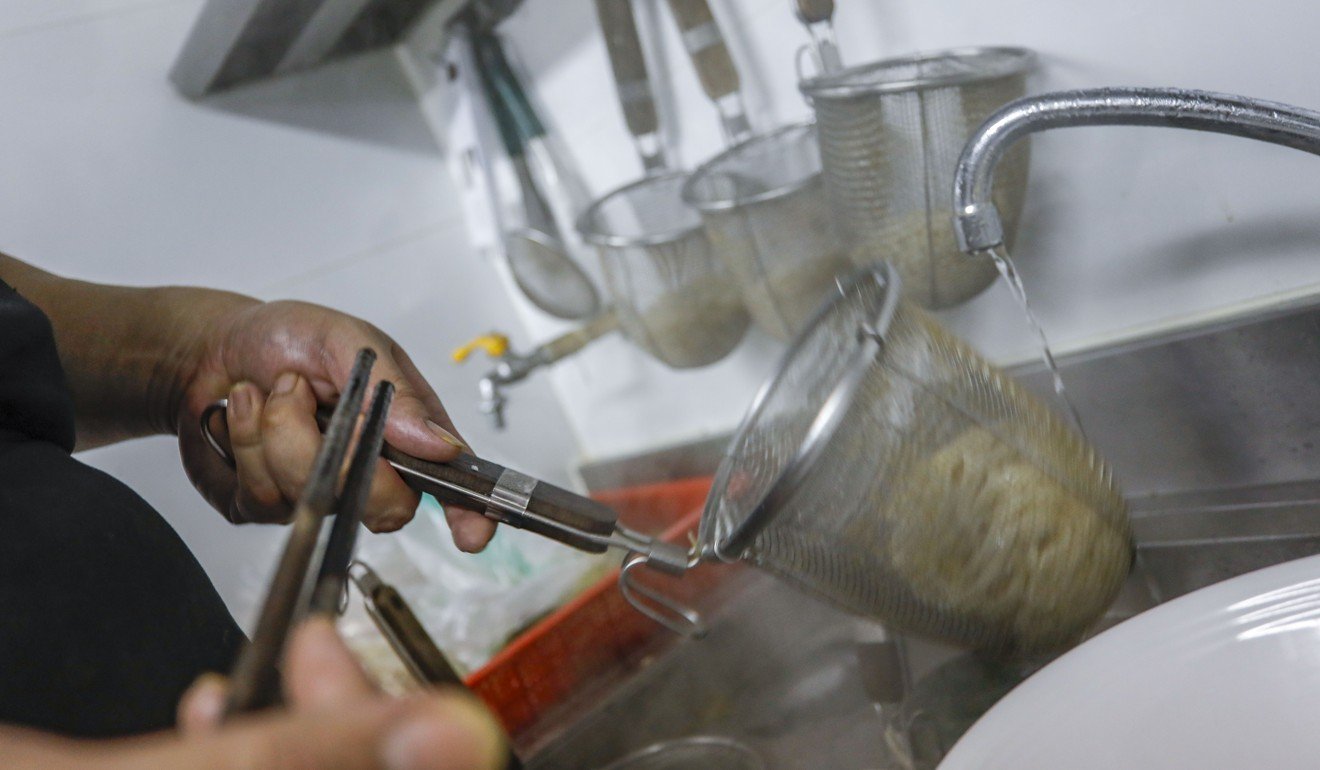
His favourites are Niu Dian Beef Noodles and Lin Dongfang Beef Noodles, both in Taipei. The former, he says, has the most luscious clear broth, while the latter excels with its house-made butter chilli sauce, which proves a zesty foil for the noodles.
Wong and his chefs spent a long time experimenting with different beef noodle recipes before opening the restaurant last October. “We went to Taiwan and asked our friends there to try our recipes. After tasting, they gave us feedback and advice for improvement.” He explains that he tried to bring the authentic Taiwanese flavour to Hong Kong.
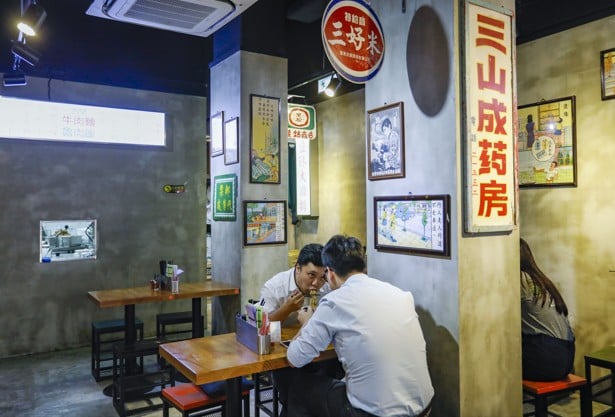
He says the restaurant’s beef is rich and tasty. “We add Taiwanese hot bean paste as well as various spices – star aniseed, cloves, cinnamon, tsaoko [a ginger-like plant], licorice, bay leaves, pepper corns – when braising the beef.” The stock is used to simmer the beef tendon for at least four hours.
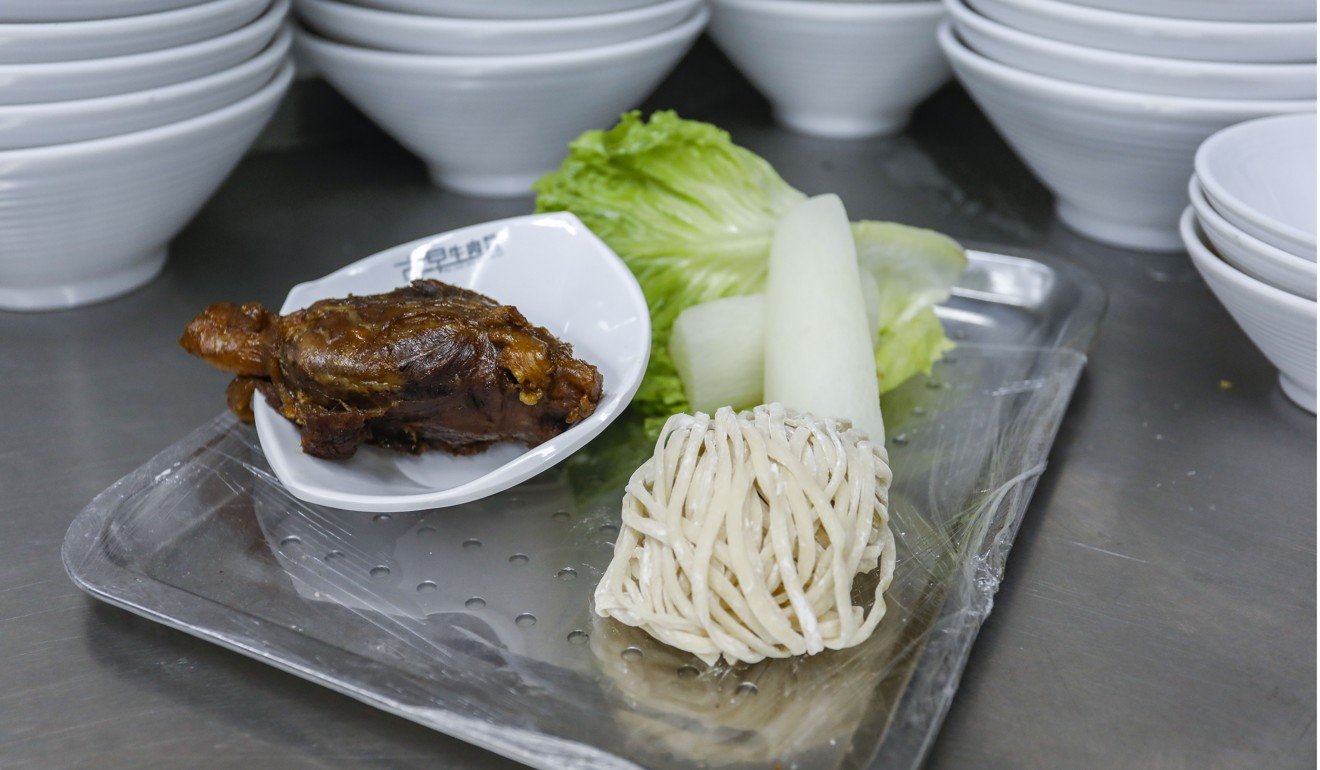
While all three shop owners obviously focus on the food, they also stress that service is important in delivering a true Taiwan-style experience. Ho expects her employees to always smile, as Taiwanese staff would do. Last year, she launched a charity, “Smile with us HK”, aiming to help people in need and promote the power of smiling, compassion and sympathy.
Hong Kong-developed plant-based ‘pork’ passes chefs’ taste tests
Hon at Iron Cow trains his employees to treat customers as family members, and has a banner hung in his restaurant with a slogan that translates as “Zealous service in return for primitive appreciation”.
Iron Cow Taiwanese Beef Noodles, Shop 28, LG/F Hilton Towers, 96 Granville Road, Tsim Sha Tsui, tel: 3622 1190 (branches also in Central, Mong Kok and another in Tsim Sha Tsui)
Jiu-Wu Beef Noodles, Golden Jubilee House, 399 Lockhart Road, Causeway Bay, tel: 2892 0320
Gu Zao Beef Noodles, 116 Fuk Wing Street, Sham Shui Po, tel: 2956 1116
